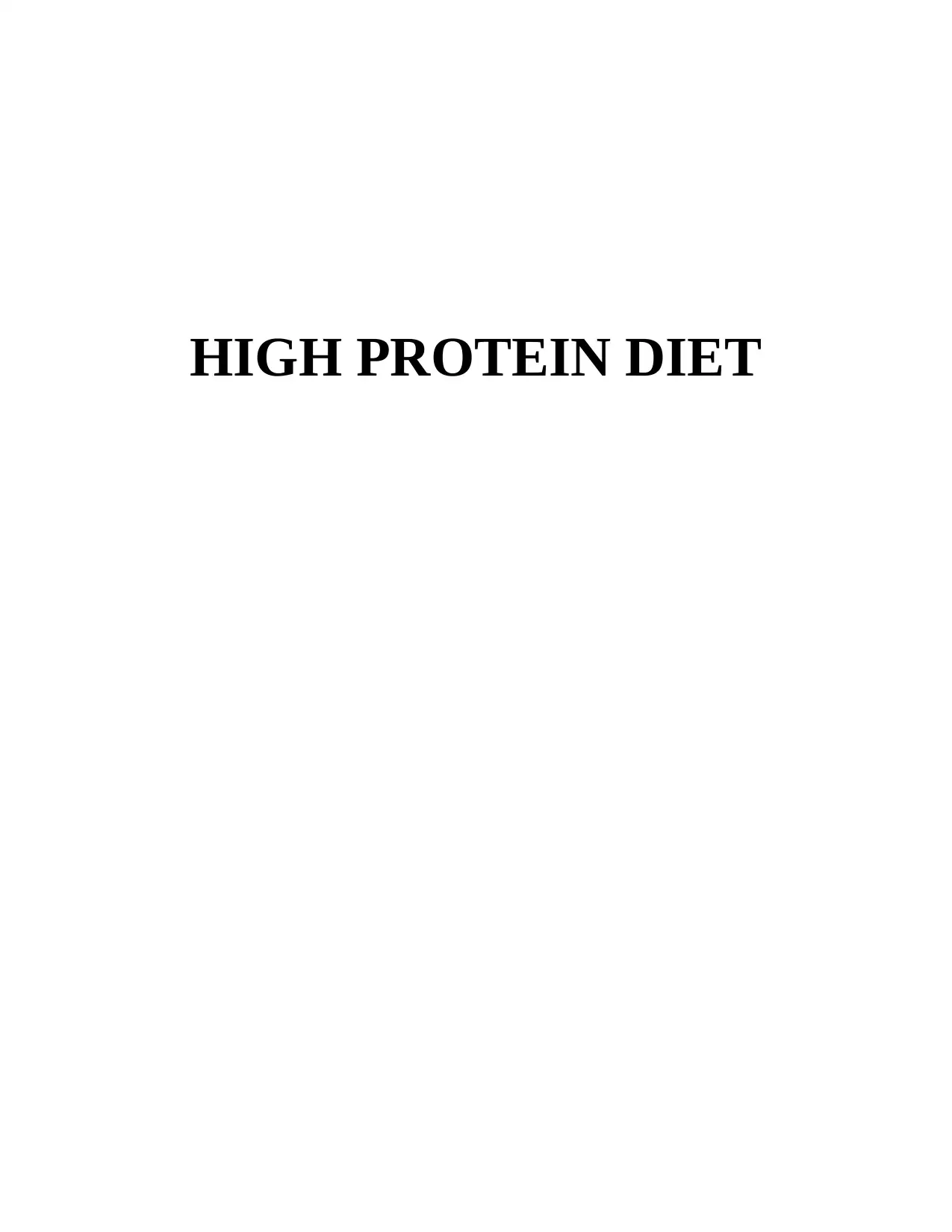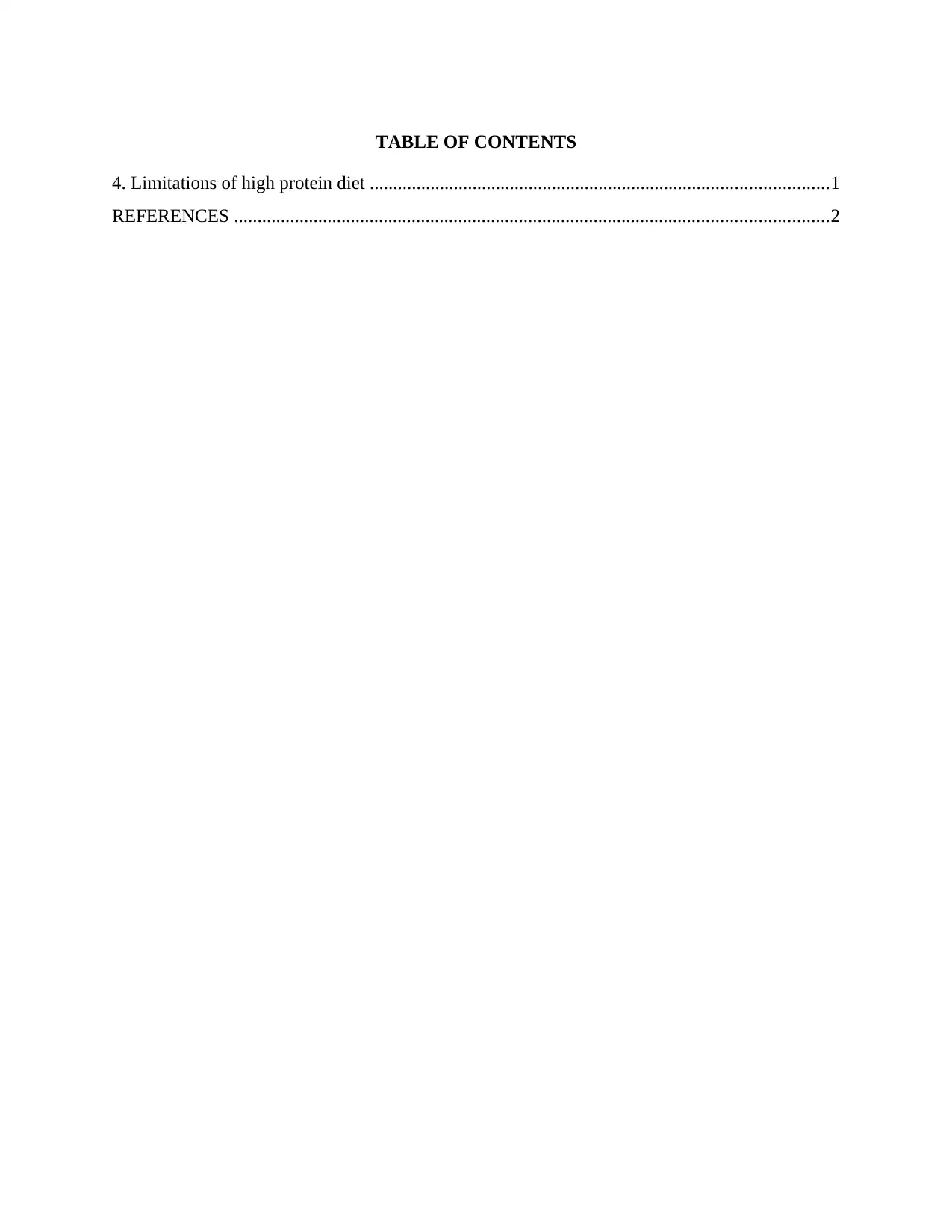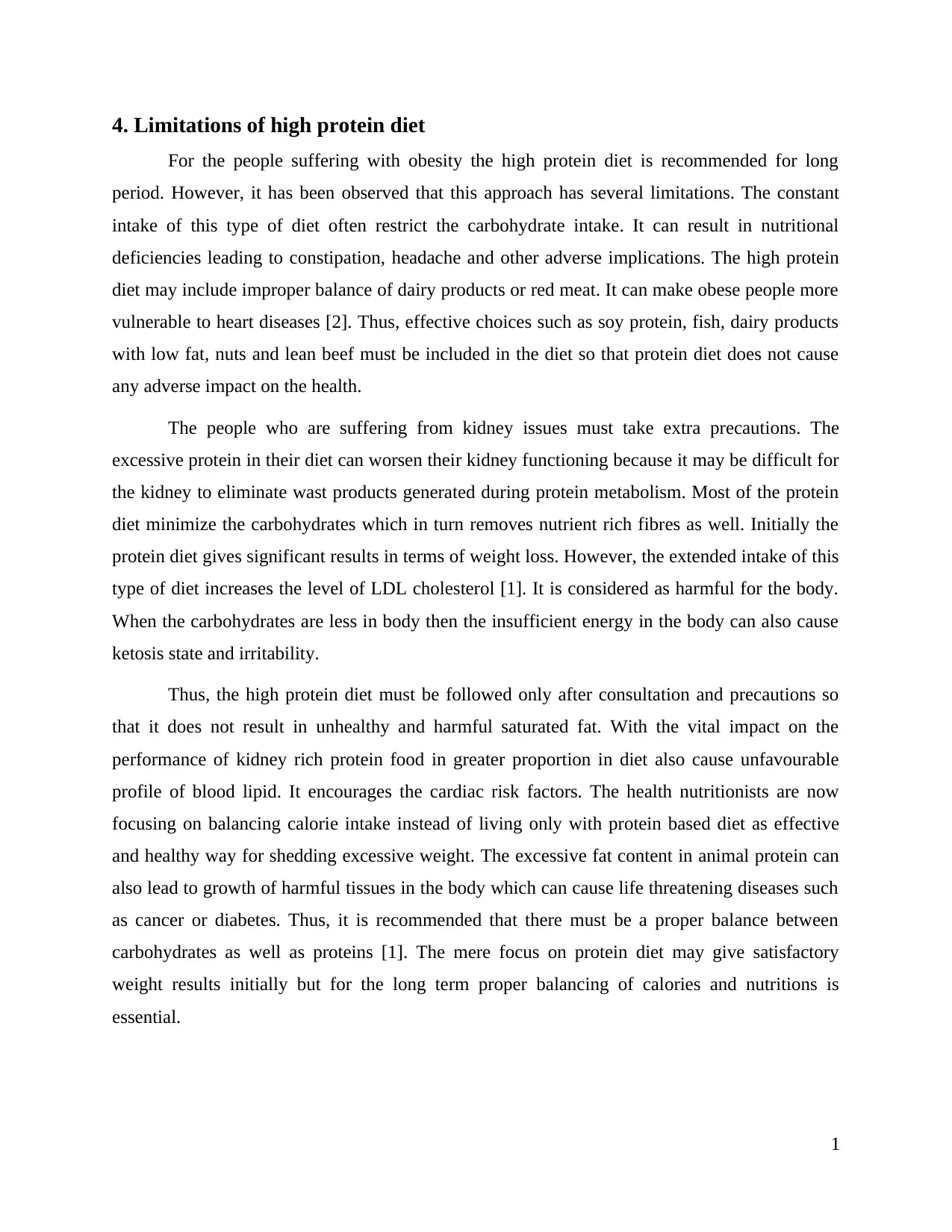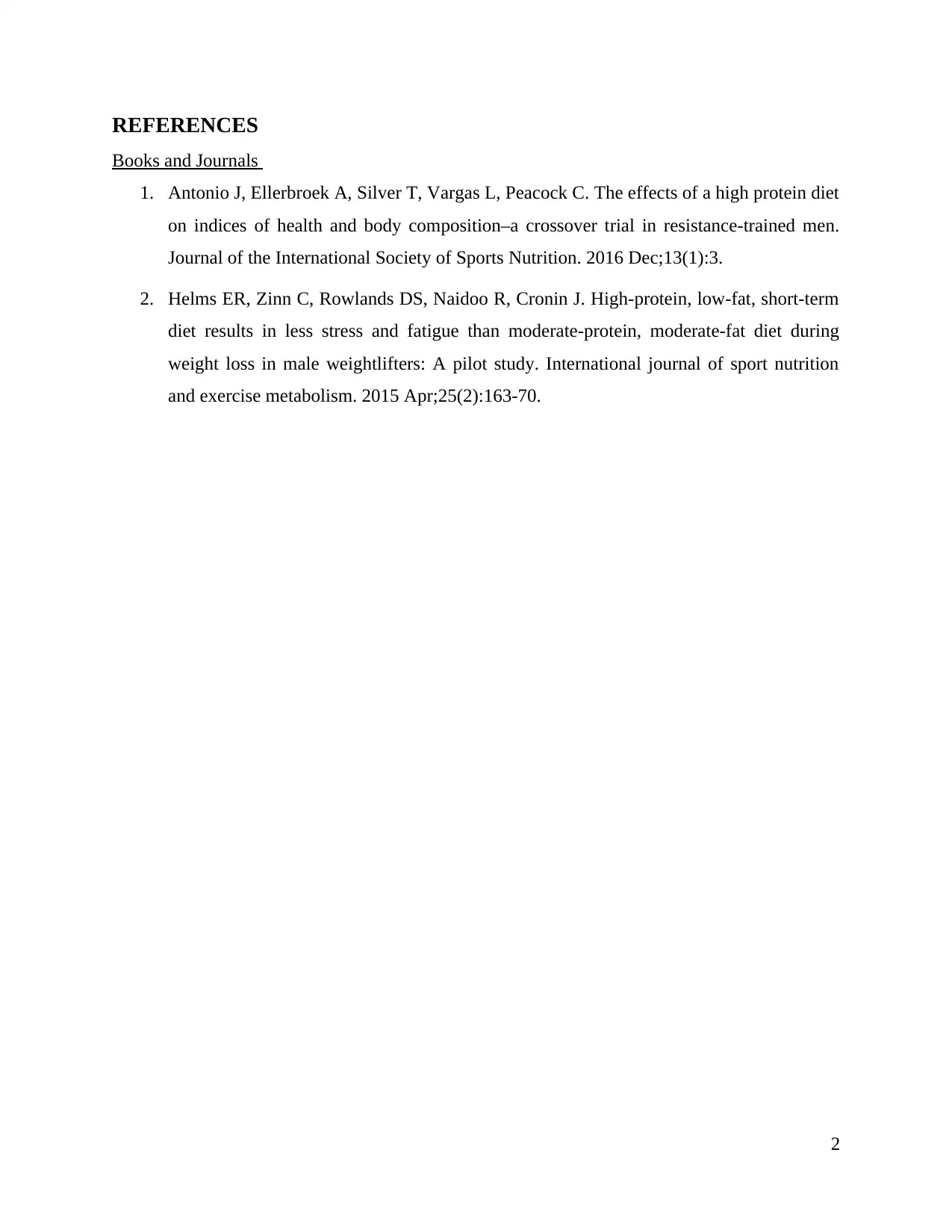High Protein Diet: Limitations, Health Risks, and Recommendations
VerifiedAdded on 2021/01/09
|4
|558
|41
Report
AI Summary
This report examines the limitations of high protein diets, particularly for weight loss. It highlights potential drawbacks such as nutritional deficiencies, including constipation and headaches, and increased vulnerability to heart diseases due to imbalanced intake of dairy products or red meat. The report emphasizes the importance of balanced diets, recommending the inclusion of soy protein, fish, low-fat dairy products, nuts, and lean beef. It also addresses the risks for individuals with kidney issues and the potential for increased LDL cholesterol and ketosis. Moreover, the report underscores the need for caution and consultation before adopting high-protein diets and discusses the adverse effects of excessive fat content in animal protein, such as the potential for cancer or diabetes. The report concludes by stressing the significance of calorie and nutrient balance for long-term health and effective weight management.
1 out of 4










![[object Object]](/_next/static/media/star-bottom.7253800d.svg)